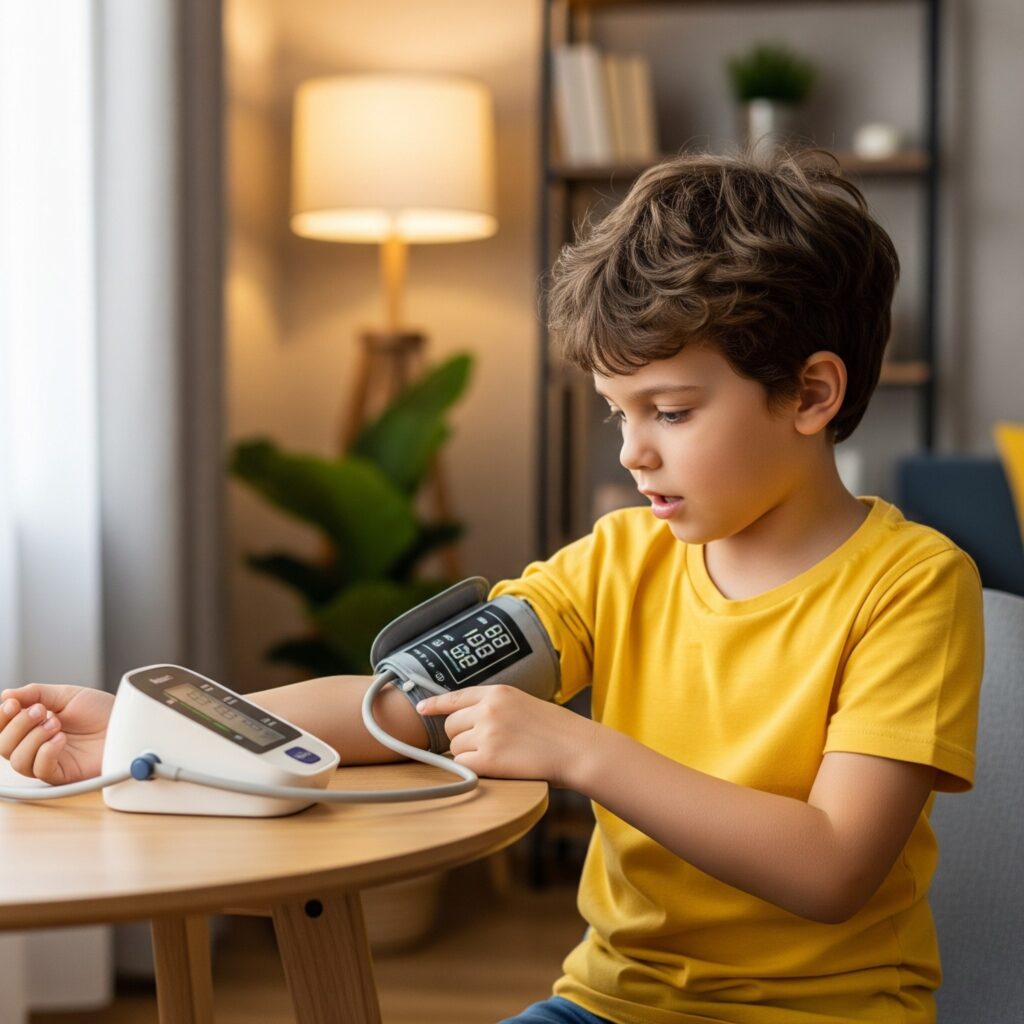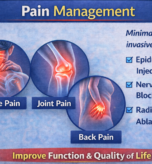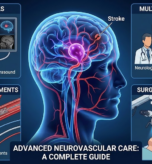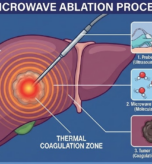High blood pressure in children is a growing health concern that extends far beyond childhood. Once considered an adult-only condition, hypertension is now increasingly recognized among young people, and research shows it can have serious long-term consequences. Studies reveal that children with elevated blood pressure face a significantly higher risk of cardiovascular disease and even premature death later in life.

Why High Blood Pressure in Children Matters
A landmark study from the Collaborative Perinatal Project (CPP) tracked more than 38,000 children beginning in the 1960s. At age seven, blood pressure levels were recorded and compared with long-term health outcomes. The results were striking:
- Children with elevated blood pressure (90th–94th percentile) had about a 40% higher risk of dying from cardiovascular disease.
- Those with hypertension (≥95th percentile) faced a 50% higher risk of early cardiovascular death.
- Even slightly raised readings increased risks—13% higher with systolic pressure and 18% higher with diastolic pressure.
This means that high blood pressure in children is not just a temporary issue; it sets the stage for future heart disease, stroke, and kidney problems.
High Pressure in Children: An Independent Risk Factor
One unique finding of the CPP research was the sibling analysis. Even among brothers and sisters growing up in the same environment, the sibling with higher blood pressure at age seven faced a significantly greater risk of cardiovascular death later in life. This proves that high blood pressure in children is an independent risk factor—not just the result of family habits, environment, or genetics.
Dr. Alexa Freedman, lead researcher, summarized the impact: “Having hypertension or elevated blood pressure as a child may increase the risk of death by 40% to 50% over the next five decades of life.”
Why Regular Screening for High Blood Pressure is Essential
Unlike adults, children rarely show obvious symptoms of hypertension. This makes regular blood pressure checks essential. The American Academy of Pediatrics recommends screenings from age three, yet many children are not tested consistently. Without monitoring, high blood pressure in children can go undetected until serious damage has already occurred.
Early detection allows doctors and parents to take action—encouraging healthy lifestyles, managing diet, and preventing long-term complications.
Risks Linked to High Blood Pressure in Children
When left unmanaged, high blood pressure in children can cause:
- Heart disease – Chronic strain on the heart muscle.
- Stroke – Weakened and damaged blood vessels.
- Kidney damage – Loss of kidney function over time.
- Premature death – Greater chance of cardiovascular-related mortality.
These risks underline the importance of recognizing and addressing childhood hypertension early
Natural Ways to Control High Blood Pressure in Children
Parents can take several steps to reduce risks and improve heart health:
- Encourage daily physical activity – At least one hour of play or exercise.
- Adopt a heart-healthy diet – Limit sodium, processed foods, and sugary drinks; increase fruits, vegetables, and whole grains.
- Maintain a healthy weight – Obesity is a leading cause of early hypertension.
- Improve sleep routines – Good sleep supports healthy blood pressure levels.
- Reduce stress and screen time – Promote relaxation, hobbies, and outdoor activities.
In some cases, medical treatment may be necessary, but lifestyle adjustments remain the foundation of long-term blood pressure control.
Prevention of High Blood Pressure in Children Starts Early
For years, heart disease prevention has focused on adults—encouraging smoking cessation, cholesterol control, and weight management. However, evidence clearly shows that high blood pressure in children plays a crucial role in long-term cardiovascular risk. Preventive care must begin earlier, ensuring children grow up with healthy habits and regular health check-ups.
As Dr. Freedman explained: “Even in childhood, blood pressure numbers matter. High blood pressure in children can have serious consequences throughout their lives.”
Conclusion
High blood pressure in children is a serious condition that can shape long-term health outcomes. Even small increases in childhood blood pressure significantly raise the risk of cardiovascular disease, stroke, kidney damage, and early death.
Parents, schools, and healthcare providers must work together to monitor, detect, and manage childhood hypertension. Protecting children today ensures healthier, longer lives tomorrow.
Check out our services: https://drvrishitsaraswat.com/our-services/






